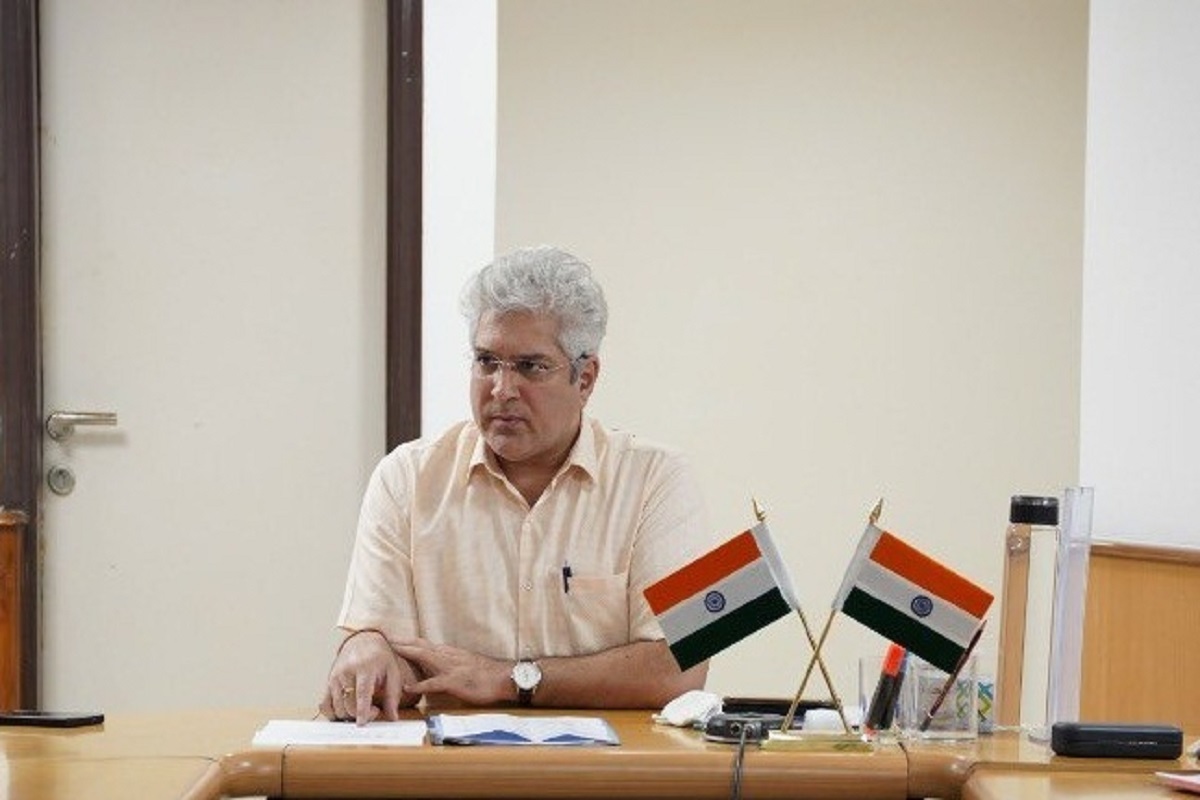Foundation stone laid for Rs 160-crore bus depot at Kirari, Delhi
The project is part of the Delhi government's plan to construct nine new bus depots across the city to house the continuously increased number of buses.
The ‘Delhi Motor Vehicle Aggregator and Delivery Service Provider Scheme 2023’ aims at having all the aggregators, be it the passenger, transport or e- commerce platform, powered by electricity.

Delhi Transport Minister Kailash Gahlot.(photo:Twitter)
In a historic move with far-reaching implication in reducing air pollution in the national capital, the Delhi government on Wednesday notified the ‘Delhi Motor Vehicle Aggregator and Delivery Service Provider Scheme 2023’.
The scheme aims at having all the aggregators, be it the passenger, transport or e- commerce platform, to switch to the electric vehicle mode by 2030.
Advertisement
Addressing the media on Wednesday, Delhi Transport Minister Kailash Gahlot informed that all the transport aggregators will be electricity-powered by the year 2030 under this policy.
Advertisement
He said the policy would be applicable to passenger transport (taxis), delivery service providers and the vehicles used in the e- commerce industry, such as cab aggregators like OLA, Uber, delivery service providers and platforms like Flipkart, Amazon and others.
The scheme will also pave the way for the electric two-wheeler passenger services (e- bike taxis).
“This is the first time Delhi government will be allowing EV bike taxis in a proper manner,” Gahlot said.
However, this shall not be applicable on the buses, the transport minister added.
According to the Delhi government, the policy will be applicable to any entity having more than 25 vehicles, further adding that a five year license will have to be taken by the existing and old entities in this regard.
As per the policy, all existing or new operators must obtain a license within 90 days of the scheme’s notification or before commencing operations.
The licenses will be valid for five years, with annual fees applicable, and zero fees in case of electric vehicles.
The fines on violations of the policy rules and regulations range from Rs Five thousand to Rs One lakh, as per the violations.
The minister also said that as per the policy if there is vehicle which is on the aggregator platform, but, is not disclosed or registered as per the norms will attract a fine and repeated violation could further result in cancellation of the license.
Additionally, a 50 per cent rebate is provided for vehicles that are less than two years old.
The transition towards EVs will take place in a phased manner based on guidelines in the policy, and by April 2030 all vehicles coming under the policy will have to be shifted to electric mode.
The policy was approved by the Lieutenant Governor VK Saxena last week, as its file was submitted to the LG office for the final nod last month after Chief Minister Arvind Kejriwal’s approval.
Advertisement